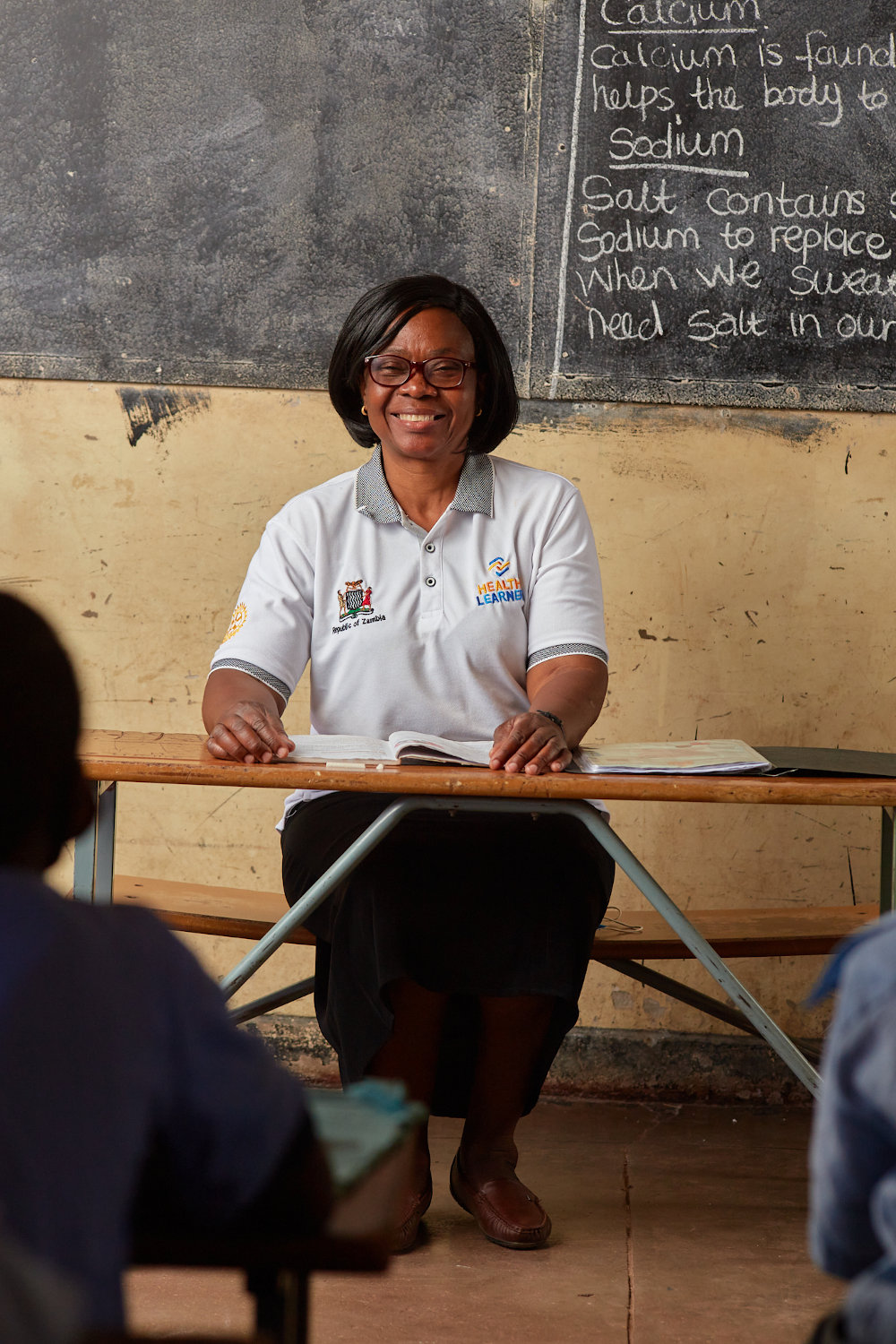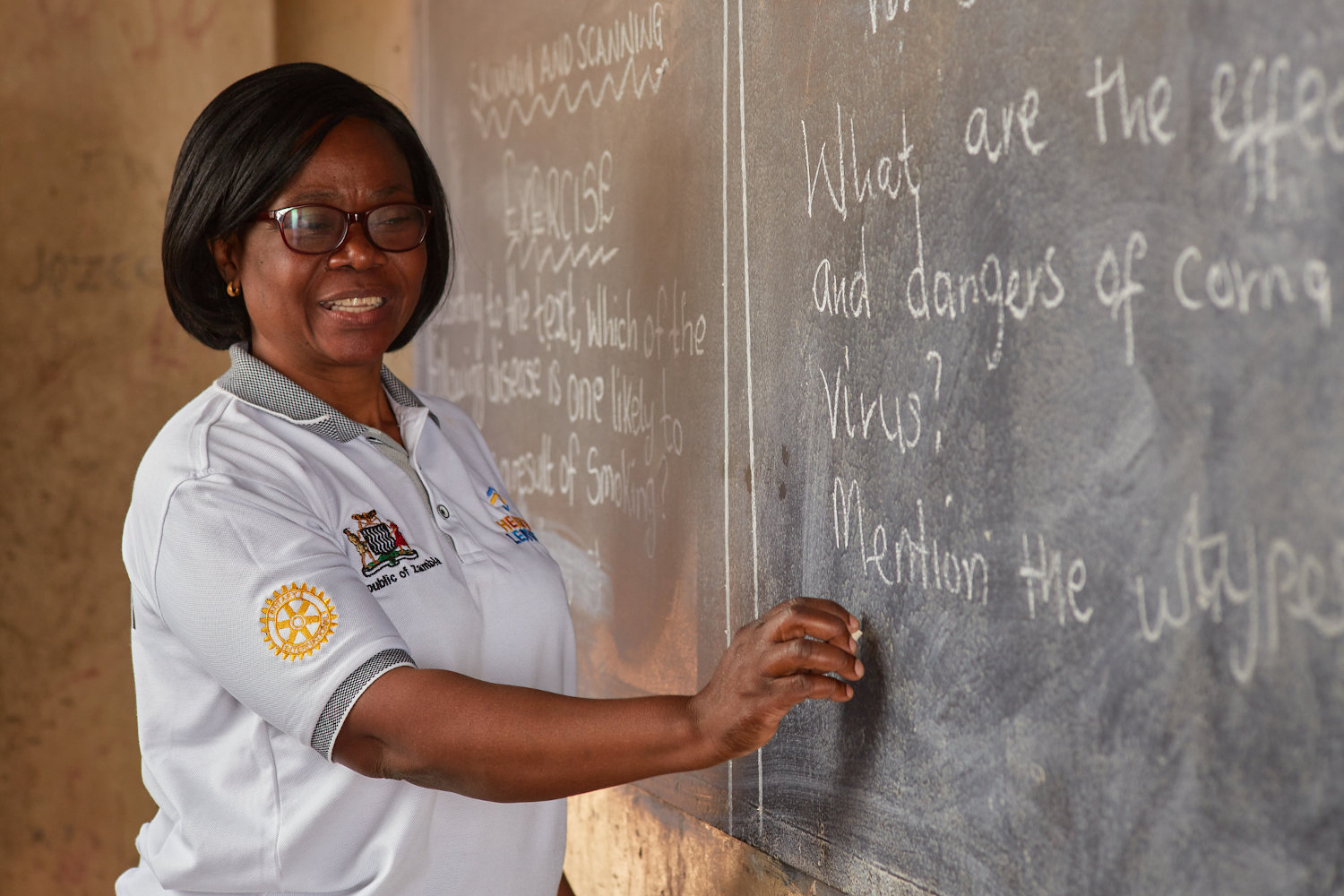Florence’s story
Healthy Learners’ School Health Worker, Florence Jere, talks through the value of reducing absenteeism in Zambian schools.
As a mother of three, Florence knows what it is like to feel worried about a sick child. As a first grade teacher, she’s experienced firsthand the high rates of absenteeism and the impact on a child’s education if he or she is unwell, but cannot access healthcare.
Based in Lusaka, Zambia, her concerns are not unfounded. Many child health programs focus on children under 5, leaving school-aged children overlooked. There is also limited pediatric care at primary health facilities for children above 5 in countries like Zambia. This leaves school-aged children vulnerable to diseases, undermining their learning and development.
This challenge is the reason why Florence and many other teachers like her are part of Healthy Learners, a non-profit organization dedicated to improving the health of children through a model of school-based community health. In partnership with the Zambian Ministries of Health and Education, teachers are trained as school health workers (SHWs), making schools a convenient and accessible entry point to the healthcare system for school-aged children. Teachers like Florence will look out for children who may be unwell and refer them to the school health room, where they undergo a health assessment. Attendance is also monitored to flag children who may be sick at home, with guardians contacted if there is a prolonged absence.
“A child who doesn’t seem well will come into the health room and we will screen them. If they are sick and we cannot handle it at the school, we will refer the child to the nearest clinic. If that child is so ill that they cannot walk, we have transport at the school to take the child to the clinic. Later on, that child will come back to school happily,” Florence explains.
While this intervention is keeping children healthy and in school, the screening or health assessment originally involved a lot of paper work. Florence, who has been part of the school health program for four years, says, “When we first introduced this in the schools, it was not a very fast process, there was a lot of writing and it would be very time-consuming. Then we starting using the mobile app for screening, and everything became so much faster.”


The mobile app is a simple-to-use tool that the SHWs utilize to perform an integrated clinical assessment on any child who is not feeling well. The technology, developed by THINKMD, features the same logic and clinical approach used by physicians and provides automated age and weight specific triage, treatment and follow-up recommendations that comply with World Health Organization (WHO) guidelines.
“When I use it, I feel like I am a doctor,” Florence says, “I really enjoy it because I can go through all of the different types of diseases and understand if the child is suffering from it and whether the risk is mild, moderate or severe.”
Equipped with a tool that helps her assess children like a health worker, Florence, whose last born recently graduated from the University of Zambia, is fulfilling a vision of healthy children who are not absent from school. Schools across the program report a 90% decrease in absenteeism. “I love my job because as a single mother, I enjoy being with children and I want to make sure that any child who is not feeling well feels attended to.”
Her dream would be to see the Healthy Learners model rolled out across all types of schools in Zambia, encouraging more children to stay in school and out of the compounds. Thanks to the commitment of teachers like Florence, this vision may soon be a reality. In May 2021, Healthy Learners and the Zambian Ministry of Education launched a joint expansion plan to establish the school health program in 10 provincial capitals, achieving national coverage by 2025. With the program showing a 22% increase in student knowledge on health, children would be more informed about staying healthy and could share this information with their families and community.
“When a child is well and in class, I get very happy.”
